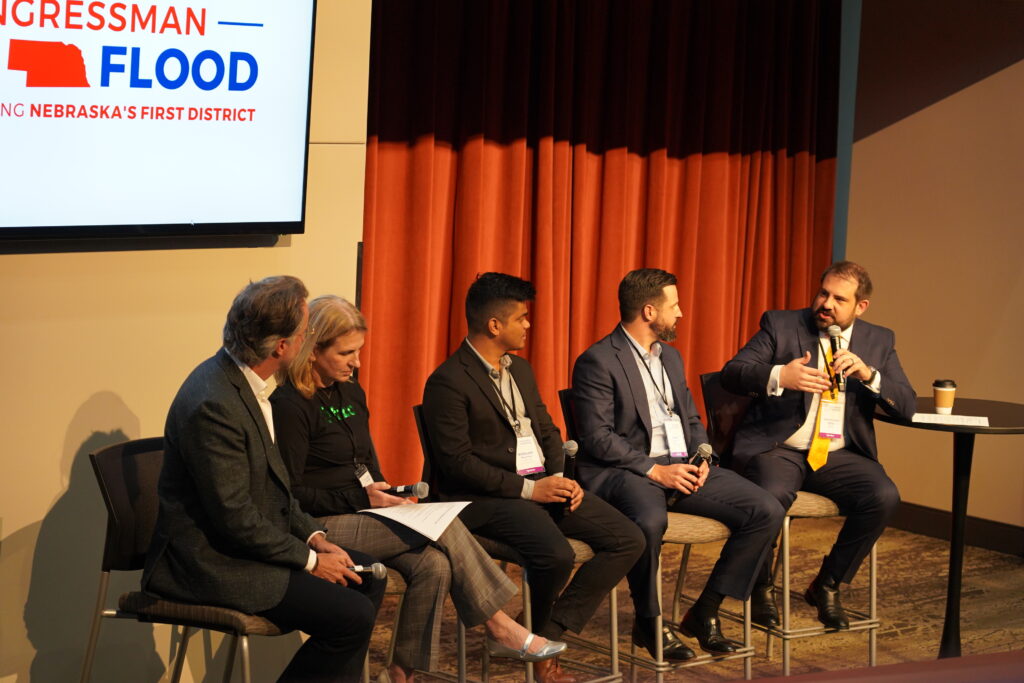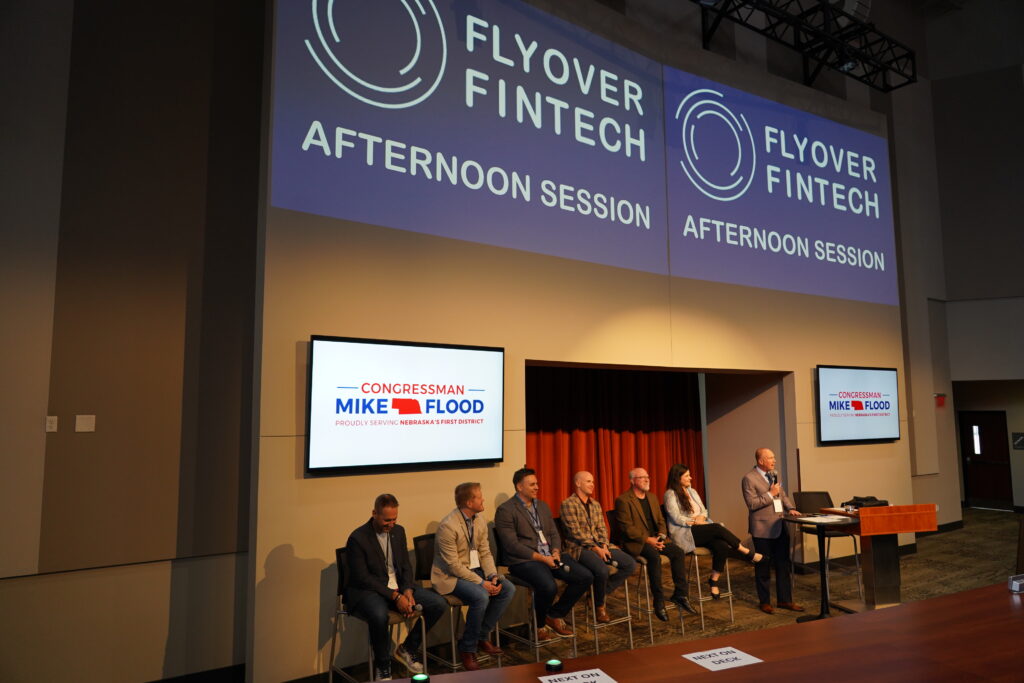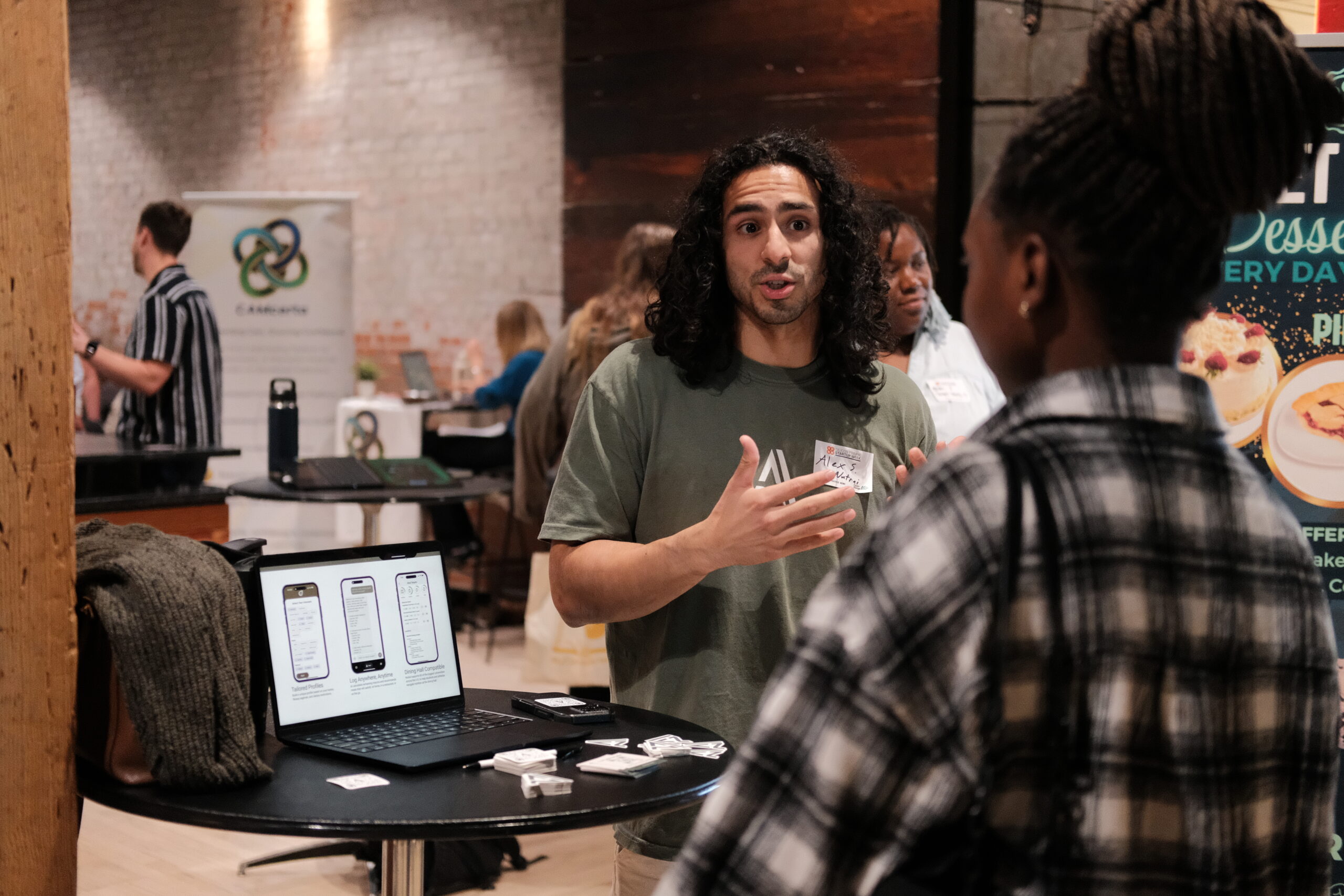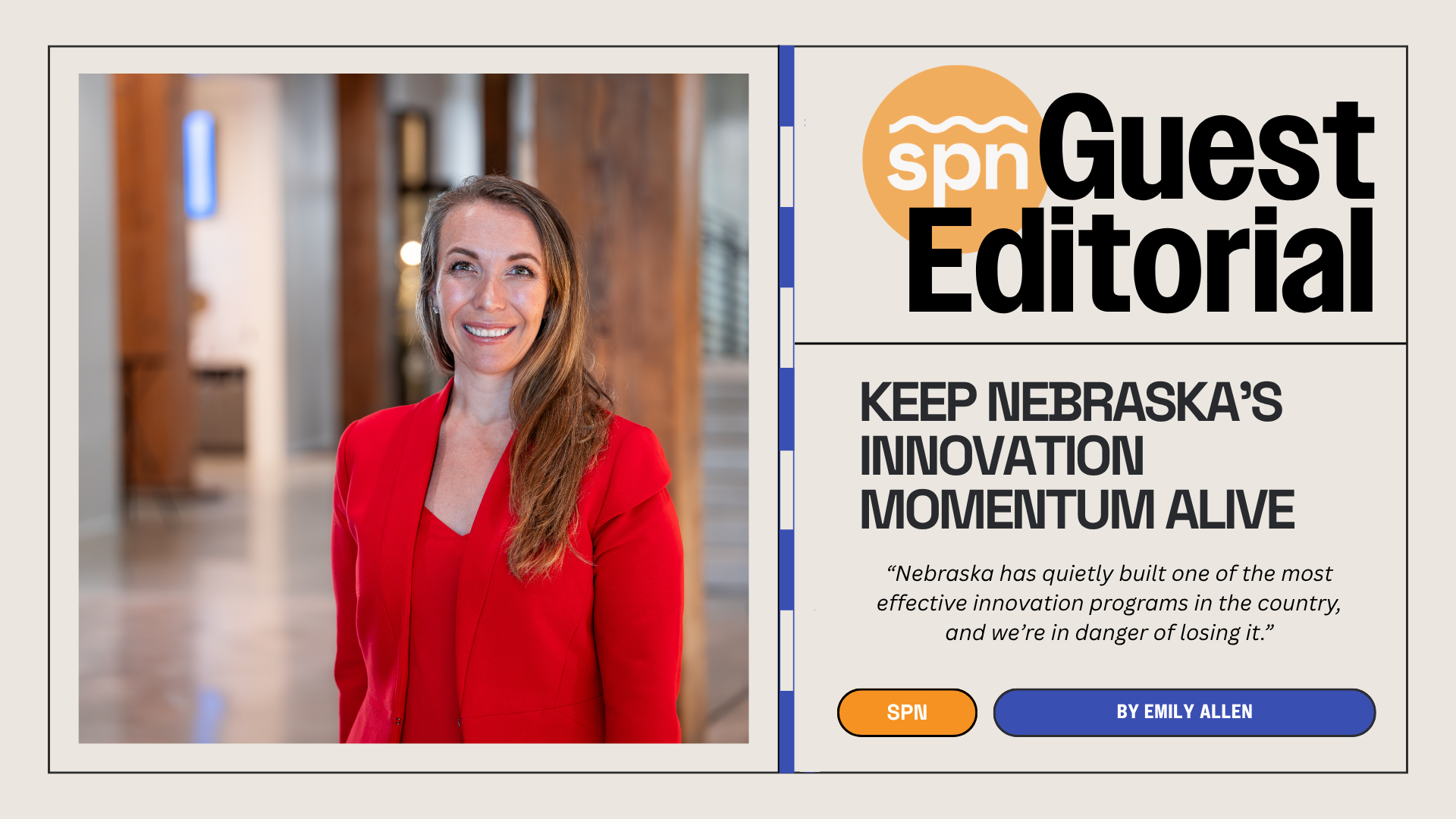At the third annual Flyover Fintech conference Tuesday, Nebraska leaders worked to position the state not just as a host but as a player in the future of financial technology.
U.S. Rep. Mike Flood opened the day by promoting Nebraska’s strengths — loyal talent, supportive lawmakers and a university system eager to partner with industry — while University of Nebraska President Jeffrey Gold highlighted the school’s pioneering programs in generative artificial intelligence. But it was the closing conversation, focused on innovation within the state, that underscored Nebraska’s ambitions to punch above its weight in fintech.
With national speakers discussing topics from artificial intelligence in banking to the evolving role of stablecoins, the conference drew policymakers, industry leaders and students to the Nebraska Innovation Campus in Lincoln. Organizers framed the event as both a showcase of Nebraska’s advantages and a forum on the future of money.

AI in banking
The morning’s first panel examined how artificial intelligence is transforming the banking industry. State Sen. Eliot Bostar moderated a discussion featuring Mike de Vere of Zest AI, Kevin Johnson of Synovus, Mihaela Kobjerowski of FNBO and Vaik Mugunthan of Dynamo AI.
Panelists said AI is already reshaping credit decisioning, fraud prevention and customer service. De Vere said Zest AI’s models allow clients to automatically approve nine out of 10 consumer loans, compared with the industry average of one in five. Johnson described how Synovus employees use generative AI assistants to access information more quickly, thereby boosting productivity and accuracy.
The conversation also turned to fairness and oversight. Kobjerowski said FNBO prefers to partner with firms specializing in compliance solutions, rather than building its own. Mugunthan emphasized the importance of guardrails to prevent “hallucinations” and data leaks. Panelists agreed that regulators, banks and technology providers must continue to educate one another as AI spreads throughout the industry.

Stablecoins
The next session focused on the fast-evolving world of stablecoins, with Paul Neuner of Telcoin, Francesco Castella of Circle and Amy Kim of PayPal joining State Sen. Bob Hallstrom on stage.
Speakers said the recent passage of the federal GENIUS Act, which sets reserve requirements and authorizes banks to issue stablecoins, was a turning point. “The passage of the GENIUS Act was a watershed moment … the first time the U.S. federal government passed something that was a federal framework for any crypto asset,” Castella said.
Panelists described stablecoins as moving beyond speculative crypto trading into everyday payments and remittances. Neuner argued the term “stablecoin” is outdated, preferring “digital cash.” Kim compared mainstream adoption to email, noting that most people don’t understand the underlying protocols but still trust the system. They predicted consumers will use stablecoins in routine transactions, often without realizing it.

Fireside chat
Over lunch, Flood sat down with U.S. Rep. Bryan Steil, who chairs the House Financial Services Subcommittee on Digital Assets, Financial Technology and Artificial Intelligence. Their conversation ranged from America’s financial strengths to looming fiscal challenges.
Steil said the U.S. has structural advantages, such as the 30-year mortgage and the dollar’s status as a reserve currency, but warned that entitlement spending and rising interest costs threaten long-term stability. “The United States can be an absolute leader as we enter Web3,” he said, pointing to the GENIUS Act and the forthcoming CLARITY Act as steps toward regulatory certainty.
Flood added that bipartisan cooperation is critical to sustaining innovation. “Certainty builds markets. Certainty grows wealth,” he said. Both lawmakers stressed the need to regulate AI through existing anti-discrimination frameworks rather than creating duplicative rules.

Innovation in Nebraska
The final panel turned the spotlight on Nebraska’s own role in fintech, and it was here that the state’s ambitions came into focus. Jason Ball, president of the Lincoln Chamber of Commerce, moderated a conversation with JP Richardson of Exodus, Kyle Tut of Pinata, Steve Mathison of Fiserv, AshLea Allberry of Maptician, Ben Pankonin of Social Assurance and Joshua Jordan of Jack Henry.
Panelists emphasized Nebraska’s business climate, which they described as both stable and supportive. “Nebraska wants the business. Nebraska is eager, and we’re going to make sure that you’re successful here,” Allberry said. That sentiment ran throughout the session, with speakers highlighting low costs, access to universities and the state’s connected and collaborative culture.
Richardson explained how Exodus aims to make cryptocurrency wallets simple enough for mainstream use, positioning Nebraska as a hub for consumer-facing innovation. Tut traced how Pinata built the rails for NFT infrastructure and is now applying that technology to broader digital assets. Mathison of Fiserv detailed advances in fraud detection, noting that the most challenging task lies in identifying false negatives without inadvertently targeting legitimate customers.
Pankonin argued that communication precision is critical as financial services evolve, while Jordan suggested that community banks and credit unions can hold their own against national giants by incorporating fintech tools into their offerings.
“Community banks, credit unions win against your Chases and your Wells Fargos of the world. They win on relationships, loyalty and trust … By embedding those fintechs, you’re creating a bigger ecosystem for the state of Nebraska,” Jordan said.
The panel also touched on workforce development, internships and investment. Speakers said Nebraska has a loyal pipeline of young talent but needs to tell its story more effectively — both to retain students and attract outside investment. Ball closed the discussion by urging the state to amplify its successes, from global brands like Fiserv to startups still on the rise.
Together, the panelists painted a picture of Nebraska as a place where fintech is not just being discussed but built. Their message was clear: The state’s future in financial technology depends not only on national regulation and trends but on how Nebraska tells its own story.




Leave a Reply